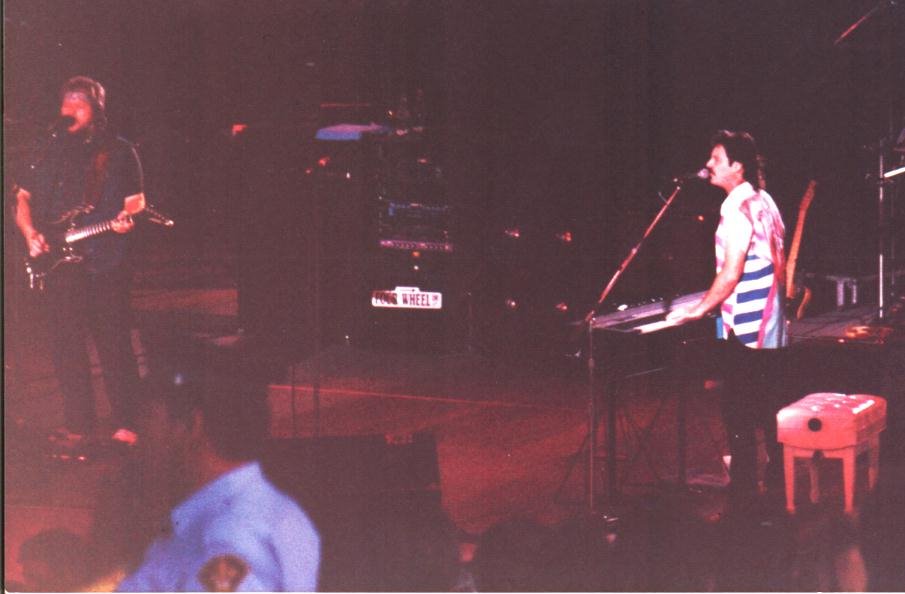In one corner is one of those modern touches we all have: the entertainment centre. A corner
 cabinet within which sits a 27 inch TV, a small stereo, a VCR and DVD player and a pile of CD's/DVD's. Buried in the back of the bottom shelf is a gorgeous carved wooden box that's about 7" x 7": single sized. It's full of singles from just about every generation of singles, good stuff too: Elvis, The Beatles, Dave Clarke 5, The Police. Seventy-five or so singles from the 50's, 60's, 70's and 80's. Unfortunately none of them have protective sleeves, which means that even if some of those Elvis or Beatles one's may have some value (I repeat, may), that value is eliminated by the small surface scratches on everyone of them.
cabinet within which sits a 27 inch TV, a small stereo, a VCR and DVD player and a pile of CD's/DVD's. Buried in the back of the bottom shelf is a gorgeous carved wooden box that's about 7" x 7": single sized. It's full of singles from just about every generation of singles, good stuff too: Elvis, The Beatles, Dave Clarke 5, The Police. Seventy-five or so singles from the 50's, 60's, 70's and 80's. Unfortunately none of them have protective sleeves, which means that even if some of those Elvis or Beatles one's may have some value (I repeat, may), that value is eliminated by the small surface scratches on everyone of them.My mother-in-law cites herself as a great fan of Canadiana. She watches CBC, reads Margaret Atwood, listens to Gordon Lightfoot because it's what good Canadians do. So how come all these singles and there's only one Canadian one? Another question: how am I supposed to listen to any of them? Seventy-five or a hundred records and no turntable. Their turntable is, in fact, hooked up a pre-amp and then the surround sound system in my basement 300KM away.
So I grab a few that strike my fancy to take home and listen too: Hermen's Hermits I'm Into Something Good, Bonnie Tyler's Total Eclipse of the Heart, Boney M's Rasputin and the lone Canadian single, The Guess Who's These Eye's. These Eye's was originally released in 1968. This single is the original, with Lightfoot on the b side.
I've heard this so many times through the years there's no surprise in it. As I noted back in June, I saw Bachman Cummings sing this song this summer. It was, I remember thinking at the time, a simple but brilliant song, the reason these two are still successful all these years later. The elegant intro chords were originally a non piano playing Randy Bachman composition. Burton Cummings has since said they were so simple that no self-respecting piano player would ever come up with such a thing (I could be paraphrasing here). It's true. The whole song is simple, pretty, and good.
The b side, Lightfoot, another song from the Wheatfield Soul album is a country-ish acoustic piece. The single is too scratchy to enjoy it, but it was not a hit and it probably doesn't deserve to be one. An alright song, but an add-on none the less.
A couple of days in Parry Sound of R & R and the best I can do is one Canadian single. It's too bad, but at least it's a classic of the genre, one of the best Canadian songs. A pretty good find all in all.



